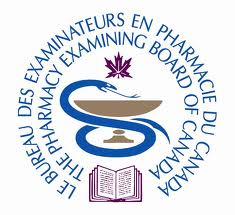FDA Approves Zetonna
FRIDAY, January 20, 2012 - The U.S. Food and Drug Administration today approved Zetonna (ciclesonide) nasal aerosol to treat the symptoms associated with seasonal and perennial allergic rhinitis in adults and adolescents 12 years of age and older.
Ciclesonide is a corticosteroid first approved for nasal use as Omnaris in October 2006. Zetonna nasal aerosol is formulated with a hydrofluoroalkane (HFA) propellant in a delivery system designed to dispense ciclesonide medication as a fine dry mist in a small volume (50 mcL) to a patient's nose, which may be able to reduce sensory effects such as back-of- the-throat run-off and run-out out of the nose that can occur with aqueous-based corticosteroids.
A large phase III clinical study investigated 74 mcg or 148 mcg doses of ciclesonide nasal aerosol once-daily in 1,111 patients, 12 years of age and older with perennial allergic rhinitis (PAR). This 26 week, double-blind, randomized study demonstrated statistically significant improvements in nasal symptoms in patients with PAR compared to placebo, after the first six weeks of double-blind treatment, for both the 74 mcg and 148 mcg doses. Results from the full 26 week, double-blind treatment period demonstrated tolerability of both the 74 mcg and 148 mcg doses of ciclesonide nasal aerosol compared to placebo.
The most common adverse reactions (≥2% incidence) included nasal discomfort, headache and epistaxis. Zetonna Nasal Aerosol may cause more serious adverse reactions which include nasal septal perforation and nasal ulceration. Zetonna Nasal Aerosol should not be sprayed directly onto the nasal septum, and patients who have experienced recent nasal septal perforation, nasal erosion, nasal ulcers, nasal surgery, or nasal trauma should not use Zetonna until healing has occurred.
Patients should be advised that glaucoma and cataracts are associated with nasal and inhaled corticosteroid use and should inform their health care provider if a change in vision is noted while using Zetonna Nasal Aerosol.
Patients should call their doctor if they are exposed to chickenpox or measles; and existing tuberculosis, fungal, bacterial, viral or parasitic infections, or ocular herpes simplex infections may become worse in patients using Zetonna.
Zetonna Nasal Aerosol should be used on a regular, once daily basis, with maximum benefit usually achieved within 1 to 2 weeks after initiation of dosing.



Comments